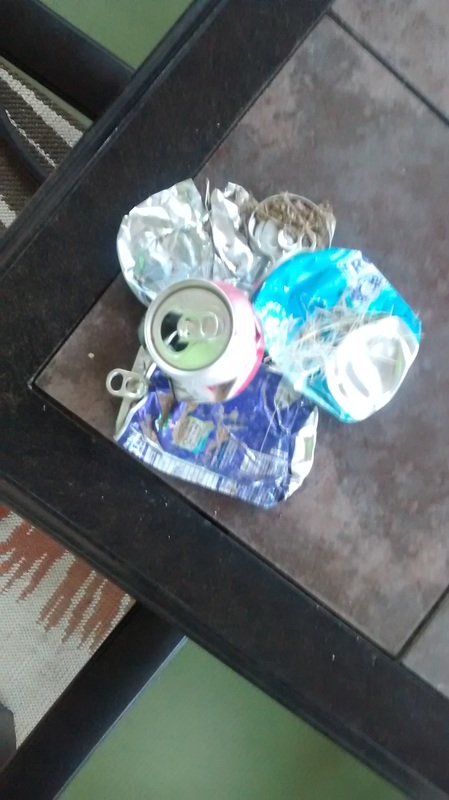| Can runs have been a family tradition for at least twenty years now. It began when I was just beginning to run, and my husband would go with me. He was faster, and grew impatient with me, but I learned a little trick that helped me keep up; I'd point out cans lying on the side of the road, and he's run to them, crush them, then race to catch up with me. Art follows life in Swan Song, my newest novel. In it, Helen befriends a foreign student whose dark skin and hair have made the other students wrongly label him a terrorist. Gurvinder then helps Helen become a runner. After one particularly difficult day at school, the two of them go on a run: |
“What’s this?” he asks, holding it up.
“It’s a grocery bag.”
He lets out an exasperated sigh. “I know that. Why are you giving it to me?”
“You know all those cans we always pass? We’re going to pick them up, then throw them in the recycling bin when we run by the grocery store. We’re going to save America, one can at a time.”
Cans against cruelty. I know it sounds lame, but it is all my brain could come up with. At least I am doing something.
We head for the dirt road on the north edge of town. It’s where the bonfire was held back during Homecoming Week and I know there are lots of cans there. I see one in the ditch and point it out.
“Stomp it flat and throw it in the sack,” I say. Gurvinder stops and I take the lead. I see three more cans, so I swerve to pick them up, then drop them on the road and run on. I hear Gurvinder smash each one, then race to catch up with me. This idea is pure genius; not only are we being good citizens, but I love being ahead of Gurvinder instead of huffing and puffing to keep up.
By the time he finally closes the gap, his bag is clattering loud enough to wake the dead.
“We’ve got twenty-t’ree, Atalanta,.” He shakes the sack, proving his point quite noisily.
“Ata who?”
Gurvinder laughs. “Atalanta. You know, the girl who threw golden apples?”
“I’m not throwing anything.”
Gurvinder laughs again. “It’s a Greek myth. Atalanta promised to marry the man who could beat her in a foot race. Hippomenes challenged her, and she really liked him, so she threw golden apples. Then she won and . . . . wait, that’s not right.”
Now it’s my turn to laugh. “I’m not going to marry you, even if I do beat you.”
“Why not?” Gurvinder asks. He asks it playfully, but I feel my face go even redder than the run has made it. I’m glad he doesn’t expect an answer, because what would I say? I would never marry Gurvinder. He’s a good friend; he’s just too different from me. It’s not the color of his skin. It’s a cultural thing. Despite what I said to my mother after having dinner at his house, I could never fit into Gurvinder’s family.




